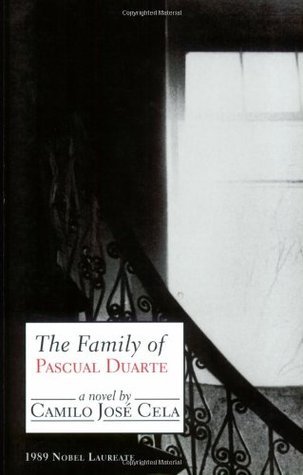
Nada
Book Description
In a crumbling Barcelona apartment, shadows whisper secrets of despair and longing. Young Andrea arrives, seeking refuge from a world ravaged by war and chaos, but instead finds herself ensnared in a web of family dysfunction and suffocating silence. As she navigates relentless poverty, turbulent relationships, and her own identity, the walls close in and danger lurks around every corner. Can Andrea break free from the dark legacy that binds her, or will the weight of her past crush her dreams forever? Prepare for a gripping journey of survival and self-discovery that will leave you breathless. What price is she willing to pay for freedom?
Quick Book Summary
"Nada" by Carmen Laforet is a haunting coming-of-age story set in post-Civil War Barcelona. The novel follows Andrea, a young woman who moves to the city to attend university and escape her troubled past. Instead of finding sanctuary, Andrea is plunged into the decaying chaos of her extended family’s apartment, where secrets, poverty, and emotional violence reign. Through her harrowing experiences with her dysfunctional relatives, Andrea comes to understand the complexities of adulthood, the constraints placed upon women, and the lingering wounds of war. As she faces the threats and uncertainties of her environment, Andrea is forced to seek independence and carve out an identity amidst despair, capturing the struggle for personal freedom in a repressive era.
Summary of Key Ideas
Table of Contents
Postwar Disillusionment and Decay
Andrea arrives in Barcelona eager to begin her university studies and leave behind the turmoil of Spain's civil conflict. She settles into her late grandmother’s apartment with relatives she scarcely knows, only to be met with an atmosphere heavy with neglect, antagonism, and poverty. The apartment itself stands as a symbol of postwar decay—its walls peeling, rooms shadowed, and the air thick with unresolved grievances. Andrea’s initial hope quickly gives way to confusion and disillusionment, as she realizes escape from one oppressive environment has only led to another.
Family Dysfunction and Domestic Tyranny
Within the apartment, Andrea's dysfunctional family becomes a microcosm of Spain’s battered psyche. Her uncle Juan’s violent temper and erratic behavior, overshadowed by his passive wife Gloria and meddling mother Angustias, create a constant atmosphere of fear. Each family member is marked by their own frustrations and traumas, inflicting emotional and sometimes physical harm on one another. Andrea finds herself caught in their battles, struggling to maintain a sense of belonging and safety while witnessing the slow unravelling of familial bonds degraded by years of hardship and resentment.
Female Identity and Social Constraints
Social and gender expectations sharply constrict Andrea’s life. The women in her environment, including her controlling Aunt Angustias and marginalized Aunt Román, embody contrasting responses to Spain’s patriarchal society. Education, which for Andrea represents the promise of autonomy, becomes another battleground as she confronts both internal doubts and societal skepticism. The city itself, vibrant yet hostile, mirrors Andrea’s sense of being watched and judged. Her friendships—especially with the glamorous Ena—offer glimpses of other possibilities, but also highlight the risks and vulnerabilities associated with female independence in that era.
Poverty and Psychological Survival
Economic deprivation is ever-present, shaping the daily rhythms of survival. Andrea experiences hunger, cold, and the indignity of reliance. The family’s financial woes intensify their emotional volatility and push Andrea to the margins both within her household and in the wider society. Poverty becomes both a visible and invisible antagonist, eroding dreams and exacerbating tensions. Andrea’s hardships force her to confront the psychological toll of deprivation, as well as the resilience and resourcefulness it necessitates.
Search for Freedom and Self-Discovery
Through the darkness, Andrea clings to her desire for agency. Her journey is one of gradual awakening as she learns to parse the lies and silences around her, forging a sense of self in the face of relentless adversity. Ultimately, she realizes that freedom requires painful choices and personal sacrifice. The novel closes with Andrea’s tentative steps toward independence, leaving behind the toxic confines of her family as she seeks a future she can shape herself. "Nada" thus stands as a powerful exploration of survival, identity, and the quest for emancipation in a world marked by ruin and repression.
Download This Summary
Get a free PDF of this summary instantly — no email required.





